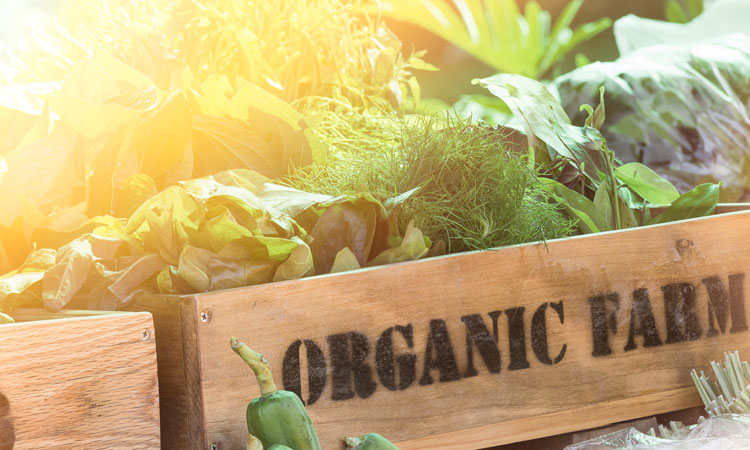Organic food and drink thrives in lockdown
- Like
- Digg
- Del
- Tumblr
- VKontakte
- Buffer
- Love This
- Odnoklassniki
- Meneame
- Blogger
- Amazon
- Yahoo Mail
- Gmail
- AOL
- Newsvine
- HackerNews
- Evernote
- MySpace
- Mail.ru
- Viadeo
- Line
- Comments
- Yummly
- SMS
- Viber
- Telegram
- Subscribe
- Skype
- Facebook Messenger
- Kakao
- LiveJournal
- Yammer
- Edgar
- Fintel
- Mix
- Instapaper
- Copy Link
Posted: 29 June 2020 | Bethan Grylls (New Food) | No comments yet
The demand for organic has reached a three-year high, according to the Soil Association.


This year, organic sales in supermarkets have seen their highest growth since December 2016.
Nielsen data shows organic food and drink sales year-on-year growth of 6.1 percent – almost double the growth of non-organic food and drink products (3.2 percent) for the 52 weeks ending 30 May 2020.
The report also reveals an 18.7 percent increase in organic sales in the 12 weeks ending 30 May, which includes 10 weeks of lockdown, compared to a 14.2 percent increase in non-organic food and drink.
This news comes at a time when external events have fast-tracked already changing shopper behaviours towards personal health, transparency and integrity, said the Soil Association. In fact, a YouGov survey commissioned by the Food Farming and Countryside Commission & The Food Foundation revealed 42 percent people feel the crisis has made them value food more.
“As this crisis emerged, and food was placed firmly in the spotlight, it became apparent that consumer habits were shifting: from less frequent shopping trips, to supporting local and independent stores, online shopping to receiving weekly deliveries of organic fruit and veg. What seems clear is that at a time when quality and safety are of importance for consumers, organic ‘stands out,’ with its benefits of transparency and integrity,” said Finn Cottle, Trade Consultant at Soil Association Certification.
These trends could see the organic sector exceeding the end of 2020 market value of £2.5 billion projected by Soil Association Certification, with the sector now on track to hit the £2.6 billion mark. Organic beef, eggs, preserves and spreads, and sparkling wine have seen exceptionally high demand.
“Despite the likelihood of tighter budgets, shoppers are choosing quality, good taste, and ethical options,” added Cottle. “Sustainability and protecting the environment remains high on their wish list – and with so many of us finding nature a vital source of respite in these difficult times – citizens seem to be making more planet-centric choices.”
Related topics
Beverages, COVID-19, Ingredients, Supermarket, Sustainability, The consumer
Related organisations
Food Farming and Countryside Commission, Food Foundation, Nielson, The Soil Association, YouGov









